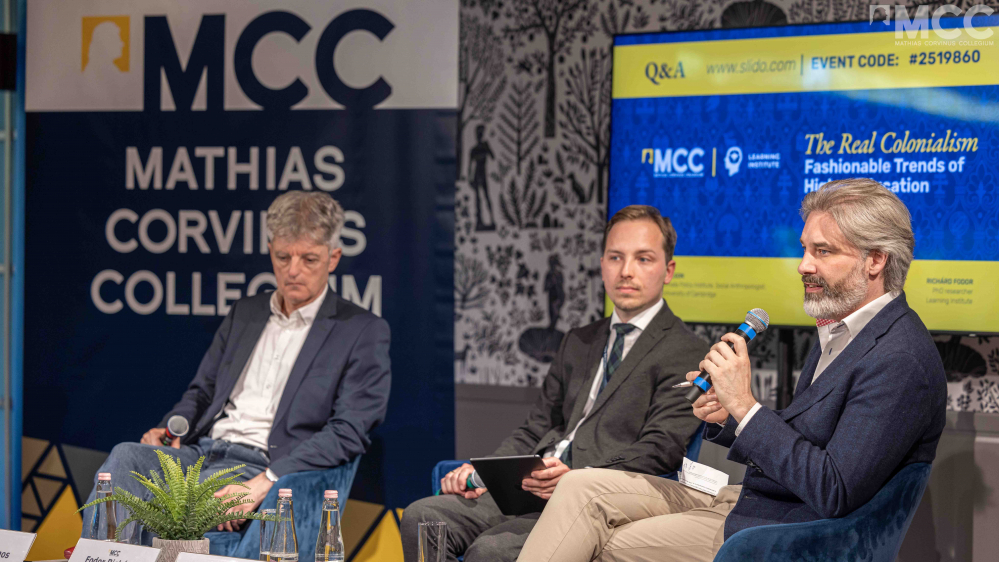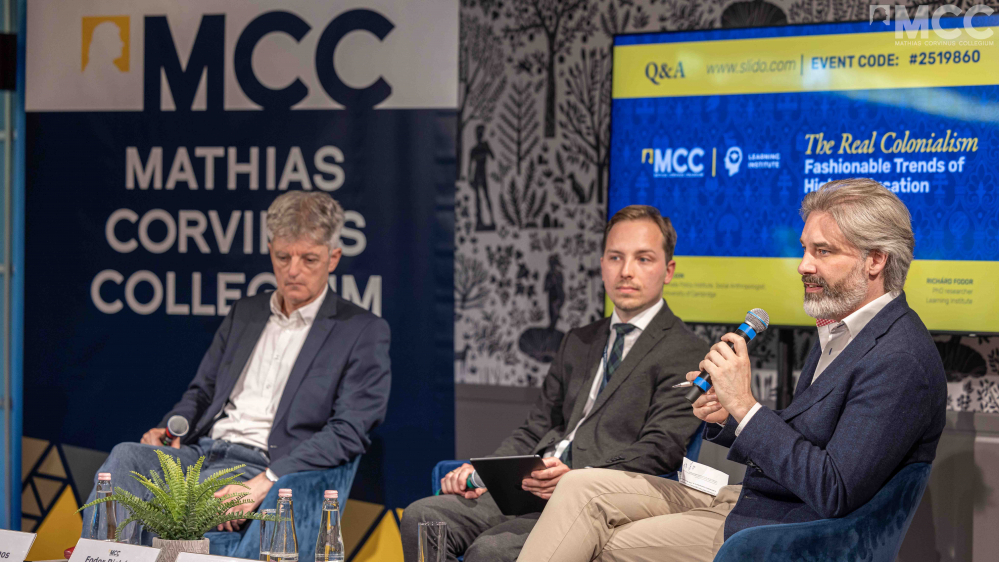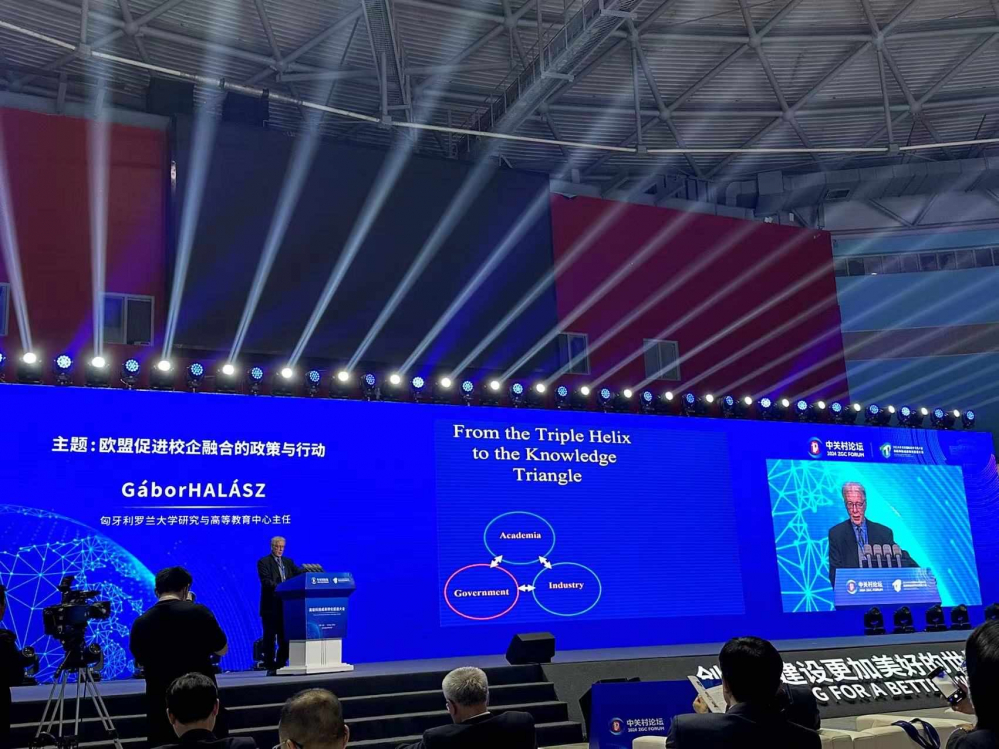What are the current hot topics in education policy? We explore the field of European education from three perspectives.
“The ideal of a university in England is either Oxford or Cambridge, or a successful imitation of them. This means that the university should be ancient, autonomous collegiate, yet dedicated to education rather than training, national rather than provincial, and exclusive to a carefully selected group of students rather than open to all who should wish to attend” - read the moderator, Richárd Fodor, Researcher of the Learning Institute, at the start of the discussion, what occurse between János Setényi, director of the Learning Institute and Calum Nicholson, the director of the Climate Institute and part of the Cambridge Union. - Is this really what a university supposed to be? Are we too far of in the wrong direction? The discussion seemed promising.
“Frictions... is a reliable source of illumination” said Calum Nicholson, who started the talk by sharing his experience at Cambridge, the memory of sitting down with a professor 1 on 1, dissecting an essay he wrote. As a key diference he mentioned that the professors there prioritize argumentation over factual knowledge. He did add however, that Oxbridge has been mystified so much, that the reason most people recognize it as an example to follow is mostly due the branding. - “The top students of the top universities here are no better or worse than the top students at somewhere like Oxbridge”.
János Setényi started from a further perspective. He argued that these days universities are used as tool for modernizing a country. “Vocational education on higher level”. Many disciplines such as economics, technology and many medical sciences challenge the traditional definition of what a university is. He also mentioned the increasing number of people studying at these institutions makes it harder to adhere to this idea. He reasoned that in addition to demographic changes, the moratorium philosophy also plays a significant role. While these ideas might feel harsher at first, in essence it goes back to what Calum is saying. - "Why’s over what’s". - Overspecializing and massifying universities makes it dificult to teach students how to think, rather than what to think.
The participants agreed the role of teacher is to give students proper tools to make up their own minds. Nowadays this practice is getting lost, not just here but also in the UK. They added the issue of the increasing number of academic proletarians. Underpaid lecturers that cannot enjoy the luxuries of a professor, burning out in the repetitive teaching duties which inevitably turns to anger. Both speakers believes a teacher should train their students into equals, but they recognizes that this isn’t possible for universities with over 30.000 pupils.
The talk contiuned with János Setényi further explaning the problem of soft majors and minors getting too soft. He sets the "Septem Artes Liberales" as the example, in which “Irish studies” or “data-driven microeconomics” has a hard time fitting in. Calum Nicholson answered by looking closer at what universities are really doing nowadays. They use intellect to solve problems created by our intellect, and while solving these problems it caused some of its own. He defended the discipline of economics but agreed to these disciplines being overspecialized. In his answer he stressed that culture will always lead to diferences but it’s natural and it cannot and shouldn’t be solves by trying to homogenise it.
The conversation came to the topic of colonialisation in education. The conclusion was rather interesting. The same way we dread our education being colonialised by the brits or any other nation, brits are fearful of theirs due to the American influence. As any other good talk or lecture this lecture sparked many ideas into the minds of listeners. The "Septem Artes Liberales", the training of poyhistors and mass education cannot eficiently co-exist in the same institution. The participants agree that both are needed. We shouldn’t argue if universities are supposed to be this or that. We can have both if we figure out the “How’s". - Yet another question created by our intellect, to be solved by our intellect.










